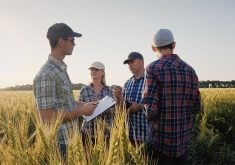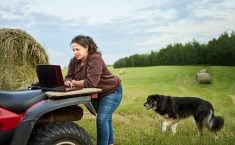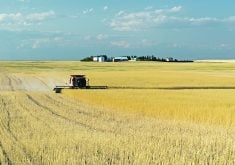Rural communities all have stories about farmland deals gone bad, land sold through divorces, and non-farming siblings inheriting land and selling it out from under the farming sibling.
That’s likely why many parents want to give most, if not all, the farmland to the farming child(ren), so the farm remains in the family.
This typical planning has hit a hiccup with the explosion in land values. If mom and dad did their estate plan in the early 2000s, they may have planned for $1 million of life insurance going to the non-farming children and 10 quarters of land going to the farming child at $100,000 a quarter. At the time, it was fairly equitable.
Read Also

Invigor Gold variety viewed as threat to condiment mustard
Invigor Gold, the canola-quality mustard developed by BASF, is on a collision course with Canada’s condiment mustard industry. It’s difficult to see how the two can co-exist.
With higher farmland values, the farming child is now receiving a massive value differential. There is a risk with estate disputes if the non-farming children feel short-changed. It is hard for farming parents to generate enough non-farm assets to equalize with their non-farming children, even after giving the farming child a large sweat equity gift.
The value differential can impact grandchildren as well. If your farming child would sell the farm the day after you pass, which of your grandchildren would benefit?
Some options for equalization:
Non-farm assets: Are funds being set aside to create non-farm assets that could be transferred to non-farming children? This can include vacation or rental properties, investments (either personally or in a separate holding corporation), and life insurance.
Instead of waiting for your passing, you could also gift transformational wealth to your children now. There are huge tax savings if you fund your children’s or grandchildren’s Tax Free Savings Account, which can grow tax free, Registered Education Savings Plans, and First Home Savings Plans.
Sell land to the farming child now: Instead of renting the land for years to your farming child, why not sell them one or two quarters now? $100,000 of land rent over 10 years is $1 million of cash outflow with no equity for the farming child.
You could use your tax-free capital gains exemption on the land payments received instead of paying tax on rental income. The payment terms could be spread over five to 10 years, and you could give a “sweat equity” family discount to your farming child on the purchase price. This would give your farming child certainty and control over some of the land base.
For your non-farming children, you could use some of the funds to help with their mortgages, for example. It would reduce the risk of animosity if funds from the farming sibling buying the land from mom and dad went to pay down non-farming children’s mortgages.
Separate land corporation(s): If non-farming children inherit shares of an active farming corporation, it is very hard for a farming child. Disputes are common when the non-farming children don’t agree with the farming child’s decisions.
If not all the corporate land is going to the farming child, splitting the corporation into a separate farming and land corporation is a good option. The farming child can inherit the farming corporation (with maybe some key land included) and freely operate the farm. The non-farming children can be shareholders in the separate land corporation. They can participate in the growth of land values without being involved in day-to-day operations.
Roll land to non-farming children now: If land has been farmed for more years than it has been rented to unrelated third parties, it can roll tax-deferred to the next generation. This can be done now, or in your will.
Gifting land now: After holding the land for three years, the non-farming child could sell the land without the gain attributing back to mom and dad. The land could be sold to the farming corporation with payments over time, allowing them to use their tax-free capital gains exemptions as well. It is a huge benefit to receive tax-free money for land now.
Roll land to non-farming children in your will: If the land qualifies, land can be rolled to your children on passing. If the land goes to non-farming children, there are options to keep the land in the family, such as a long-term rental agreement for the farming child. The farming child could also have a right of first refusal to buy the land, potentially with a discount from the fair market value, so they could buy the land at a reasonable price.
If you are gifting value to children, the risk of divorce should be considered. An interspousal agreement (“pre-or post-nup”) helps ensure the land and value stays in your family.
What is your long-term plan for your farmland? Are you set up for success or is there potential for disputes? We encourage you to discuss succession with your trusted advisors to make sure the farm can stay viable in the family while also avoiding hard feelings and disputes with non-farming children.
Levi Derksen, CPA, CGA, is a senior manager in the Ag Team at Buckberger Baerg & Partners LLP in Saskatoon.

















